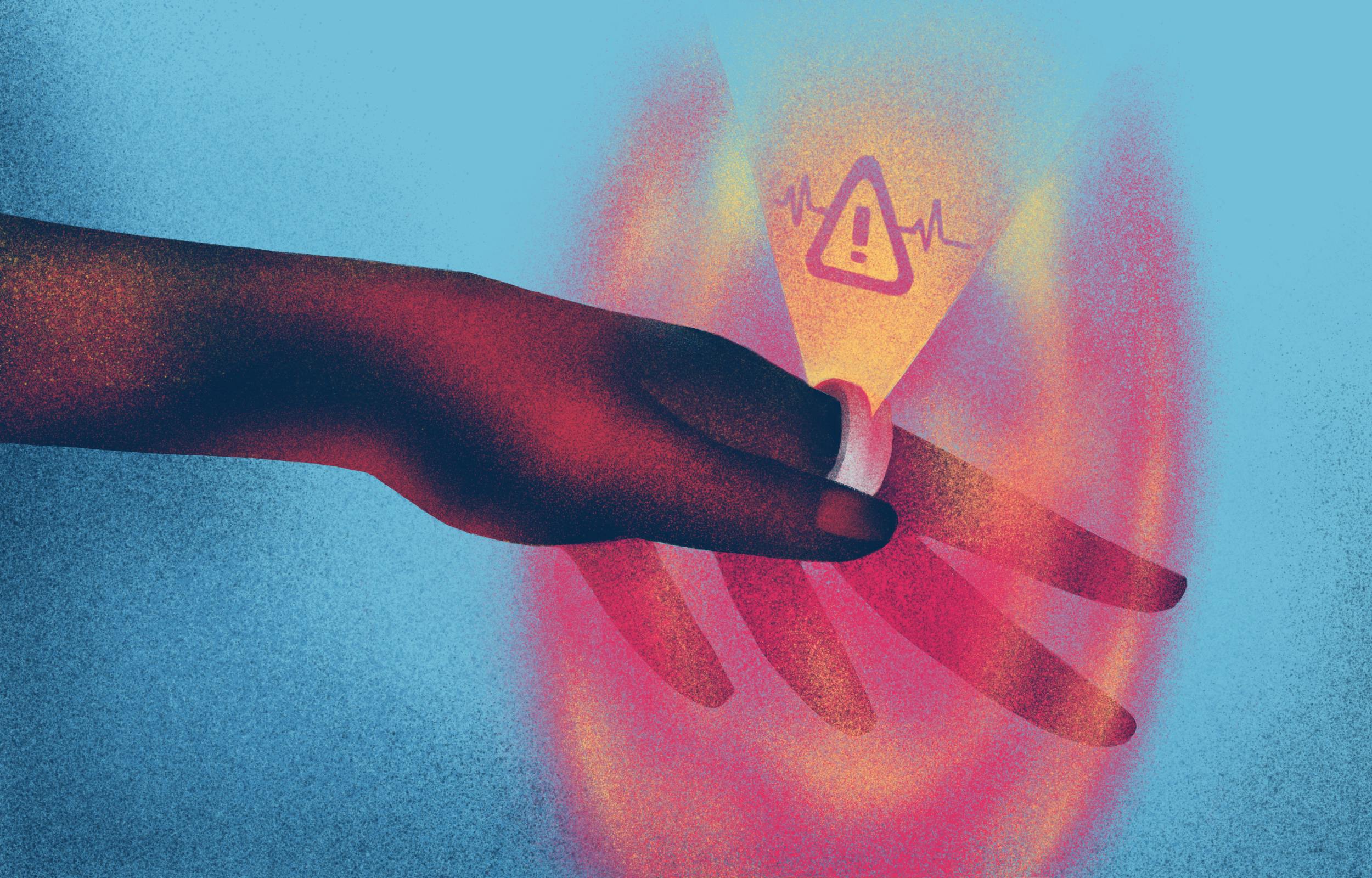Your finger will tell you if you’re getting sick
Feeling a bit run-down or suspicious of a tickle in your throat?
Soon, you might not have to wait to find out if you’re actually coming down with something. Your wearable device might be able to warn you.

The story: Wearable giant Oura has launched Symptom Radar for its market-leading smart ring, which claims to be able to notify users when they’re starting to get sick with a respiratory illness.
- Four years after health innovators tackled early COVID detection, Oura’s popular product may finally be able to do just that, with no nasal swab required.
- Of course, the feature is not clinically diagnostic, but rather can flag that “something might be up” in your immune system.
Warning, sickness ahead: Illness warning lights have been in the works for manufacturers like Oura and Fitbit for some time. Here’s a primer on how they work.
- Oura researchers found that physiological signals tend to begin shifting a day or two before a person begins feeling symptoms of a respiratory illness.
- Symptom Radar puts that research to work by detecting deviations from baseline in metrics like resting heart rate, heart rate variability, temperature trends, and breathing rate.
- When users sync their data with the Oura app in the morning, they’ll be notified of how their metrics line up with no signs, minor signs, or major signs of strain with respect to respiratory illness.
- In the case of minor or major signs identified, users are encouraged to turn on “rest mode.”
The question of useful data: Mixed reactions to this announcement come down to an evergreen question in patient-facing medtech. Especially with Oura acknowledging the possibility for error in Symptom Radar reporting, what is actually useful for people without medical expertise to know about their bodies and health?
- On one hand, illness prediction developments are always an exciting win for preventive health. Similarly as in the case for DTC diagnostic kits and full-body MRI startups, giving more people insights into their health can empower them to take action—before they’re fully sick.
- You can even see illness prediction warnings as a boon for public health. If people heed these warnings and stay home when they might be getting sick, they don’t become vectors for disease.
- However, many doctors remain skeptical of this kind of wearable data’s benefit to health—partially because they fear it can promote hypervigilance and health anxiety. It’s the age-old argument against patients seeing their health data without the medical expertise to interpret it.
However, we believe patients are more discerning than many clinicians give them credit for. Yes, it’s always best to get a healthcare provider’s input, but with so many aspects of everyday health being self driven, a little more data can be the difference between a healthy habit or choice and a less healthy one. Patients deserve that opportunity.